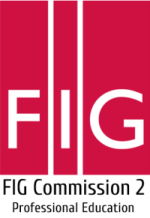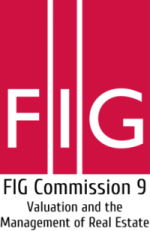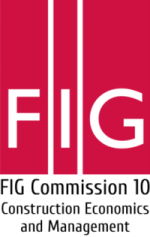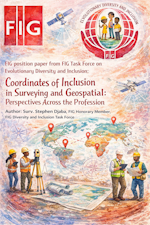FIG Position Papers
FIG position papers are papers and articles from FIG commissions, networks,
task forces, etc. on specific topics.
Content
- FIG commissions
- FIG tasks forces
Position papers from FIG commissions
 FIG
Commission 2 Professional Education and 7 Cadastre and Land Management FIG
Commission 2 Professional Education and 7 Cadastre and Land Management
Teaching Essentials for Responsible Land Administration: Considerations
for future education and training
The postion paper is written by by Simon Hull, Menare Royal Mabakeng,
Didier Milindi Rugema, Grazyna Wiejak-Roy, Rosalie Kingwill and
Eugene
Uchendu Chigbu with foreword by Dimo Todorovski and
Rohan Bennett,
Chairs of FIG Commissions 2 and 7 respectively.
The Teaching Essentials for Responsible Land Administration (TERLA)
developed between 2015 and 2018 under the patronage of the Global Land Tools
Network (GLTN). TERLA addressed the challenge of teaching the daunting and
complex domain of land governance at a country-level. This publication looks
back on the foundation work, unpacking lessons with its application to case
forward. Representing the joint efforts of Commissions 2 and 7, this paper
recognizes the need to adapt TERLA to the evolving demands of professional
education in land administration.
FIG
Commission 2 website
Published March 2025
 FIG
Commission 9 Valuation and the Management of Real Estate FIG
Commission 9 Valuation and the Management of Real Estate
Viewpoint on Transparency in Real Estate Markets
The position paper is written by Chair of the commission
Peter Ache with Grazyna Wiejak-Roy, James Kavanagh, Eva Katharina Korinke, Bastiaan
Reydon.
The paper provides an
excellent basis for clearly and definitively defining and measuring the
concept of "transparency in the real estate market," as is fitting for
geodesists.
FIG
Commission 9 website
Published November 2024
 Commission 10 Construction Economics and Management Commission 10 Construction Economics and Management
Digital Transformation in Quantity Surveying: Paving the Way for Smart
Cities and Professional Evolution
The position paper is written by Asst. Professor Ts. Sr. Dr. Nadzirah Hj.
Zainordin, Head of Research & Postgraduates Studies, and Ts. Sr.
Khoo Sui
Lai, Head of Department Quantity Surveying at UCSI University, KL Campus,
Malaysia.
The paper explains the role of Quantity Surveyors in the era of Digital
Construction. The integration of digital tools into the field of Quantity
Surveying (QS) is revolutionizing the way professionals approach
construction projects. These advanced technologies are enhancing the
efficiency, accuracy, and overall decision-making process in the
construction and infrastructure sectors. As quantity surveyors embrace
digital innovation, they are able to work smarter, deliver more precise
outcomes, and ensure the success of projects from inception to completion.
Technologies such as Building Information Modelling (BIM), drones, 3D
scanning, Artificial Intelligence (AI), machine learning, and cloud-based
project management are transforming the practice of quantity surveying.
FIG
Commission 10 website
Published May 2025
Position papers from FIG task forces
 FIG
Task Force on Evolutionary Diversity and Inclusion FIG
Task Force on Evolutionary Diversity and Inclusion
Coordinates of Inclusion in Surveying and Geospatial: Perspectives
Across the Profession
The paper presents “coordinates of inclusion” as a metaphor for how the
surveying and geospatial profession positions people within its professional
landscape. It argues that inclusion is a strategic necessity for innovation,
sustainability, and relevance, built on the interconnected principles of
diversity, equity, and inclusion. Despite progress, persistent barriers such
as gender inequality, cultural expectations, and institutional biases
continue to limit participation and representation, particularly for women
and underrepresented groups.
Drawing on his personal professional journey, Surv. Stephen Djaba
highlights the transformative role of mentorship, collaboration, and
inclusive leadership. The paper emphasizes that inclusive representation
strengthens innovation, public trust, and global relevance, and calls on
young surveyors to build a people-centred profession by promoting equitable
participation, celebrating diverse role models, and using geospatial tools
to help identify and address social inequalities.
FIG task force website on Evolutionary Diversity and Inclusion
Published December 2025
|


























